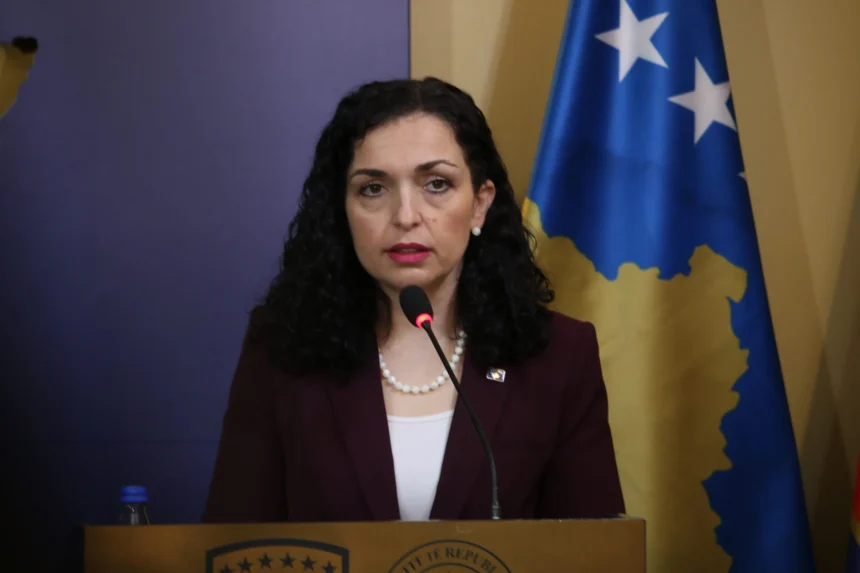President of Kosovo, Vjosa Osmani, has stated that the parliamentary session to vote on the Prime Minister’s mandate is now in the hands of the members of parliament and the Presidency of the Assembly.
Speaking to the media, Osmani emphasized that she is ready to propose solutions for the salaries of Radio Television of Kosovo (RTK) employees, but has not yet received a response from political parties regarding this initiative. She urged journalists to apply “positive pressure” on parties to act in the interest of citizens and the state.
“As you know, the second mandate for Prime Minister is still within the constitutional deadline, and it will depend on the deputies and the Assembly Presidency when the session will be called. Only a few days remain, and I hope this will happen as soon as possible so we can see the results of this session. However, I cannot pre-judge it,” Osmani said after attending the forum ‘From Resolution to Action: 25 Years of Women Transforming Peace and Security in Kosovo’.
Osmani also addressed the situation at RTK, reiterating her readiness to take the initiative to resolve the salary issue:
“As President, I have raised this issue with political leaders, both in joint and separate meetings. I have expressed full readiness to propose a legislative initiative if opposition parties do not wish to support a government proposal. However, parties must show willingness to vote on it in the Assembly. So far, I have not received a response. This is an issue that can be resolved easily, either by my initiative or by deputies themselves.
Beyond RTK salaries, I have raised the Growth Plan exceeding €800 million, the World Bank agreement involving €1 million by the end of December and over €200 million at the start of next year that could be lost if not ratified. In total, we are talking about over €1 billion, roughly a quarter of Kosovo’s budget, that should be secured for the benefit of citizens and the state,” Osmani added.
The President stressed that she expects political parties to act responsibly, underlining that decisions should prioritize the interests of citizens and the state:
“I expect reflection from political parties. All documentation is ready. What is needed is the political will. I encourage the media to maintain positive pressure on parties so these decisions are made by the Assembly and its representatives, elected on 9 February, who still have not acted. They must make decisions in the interest of citizens and the state,” she concluded.







